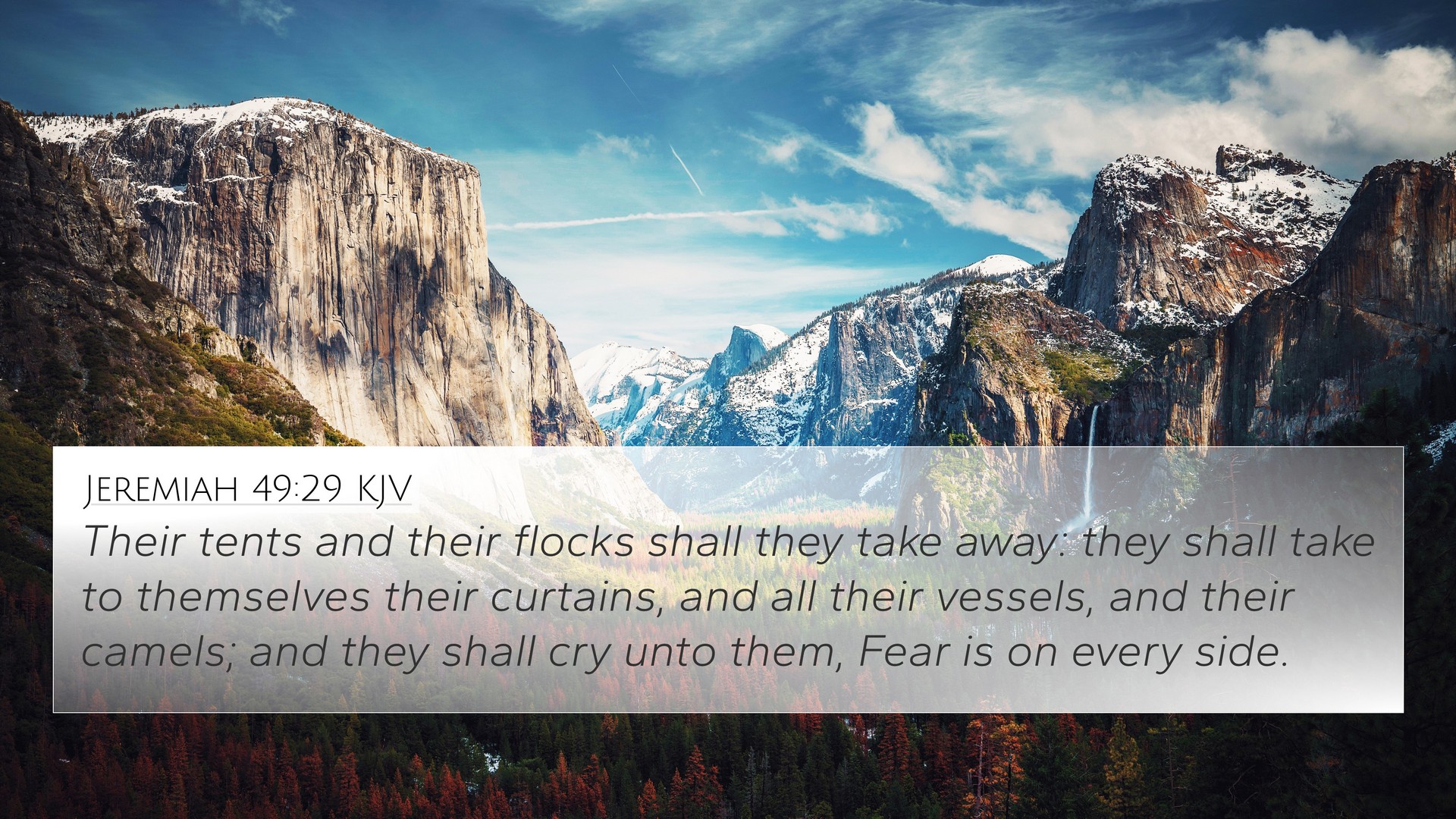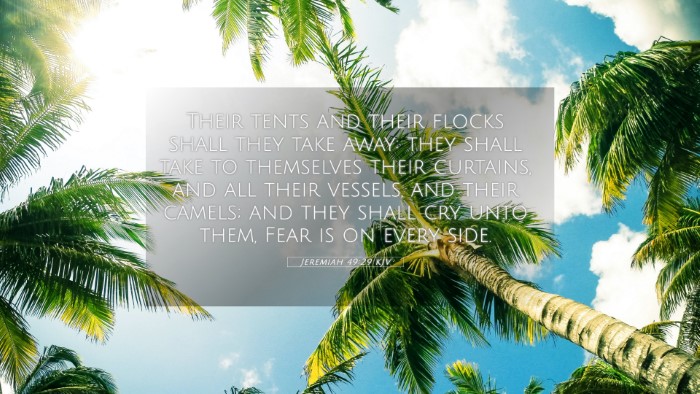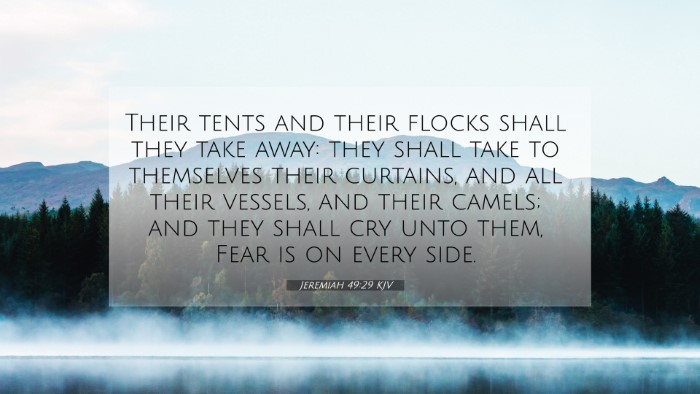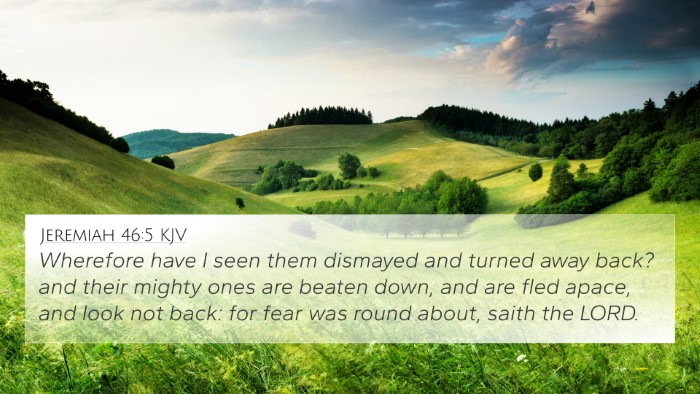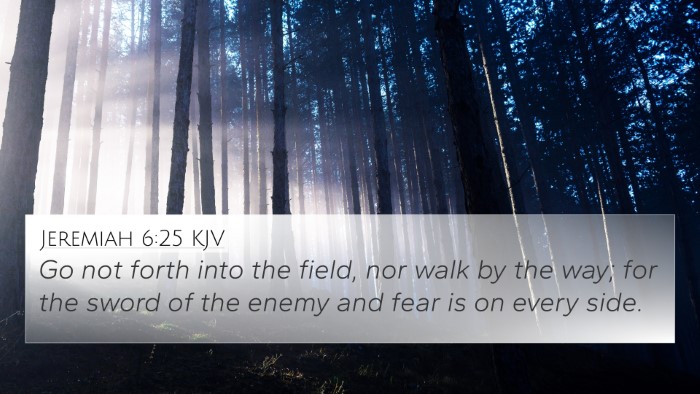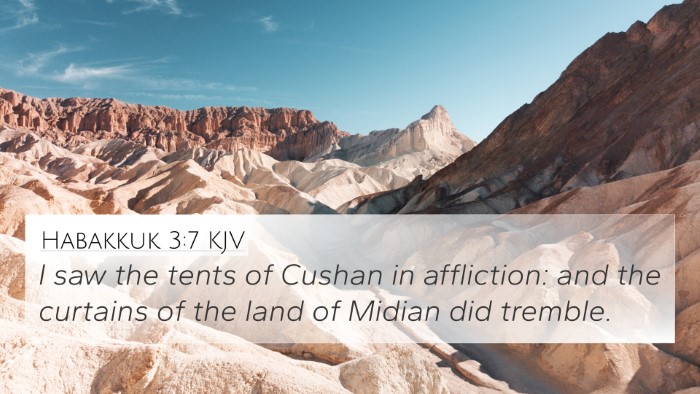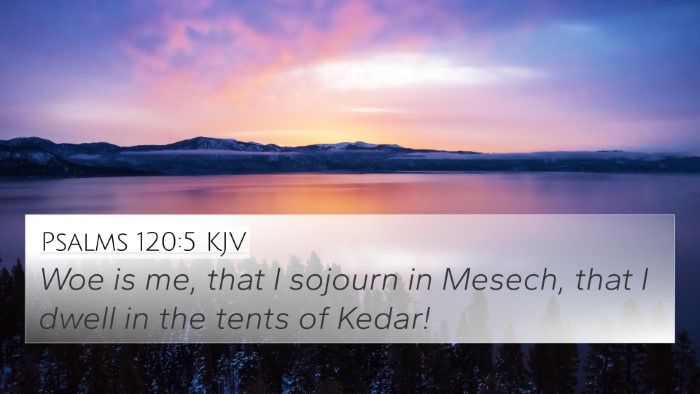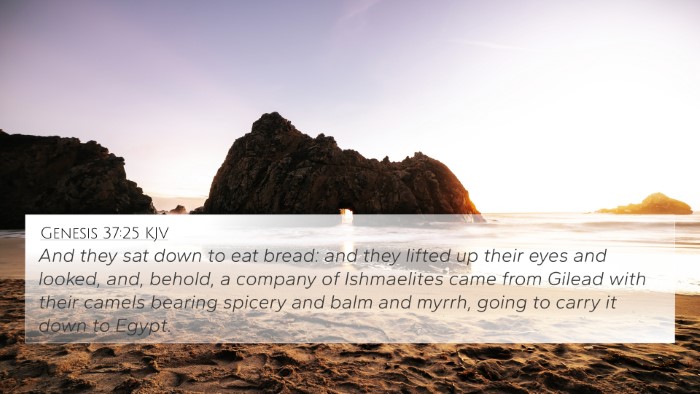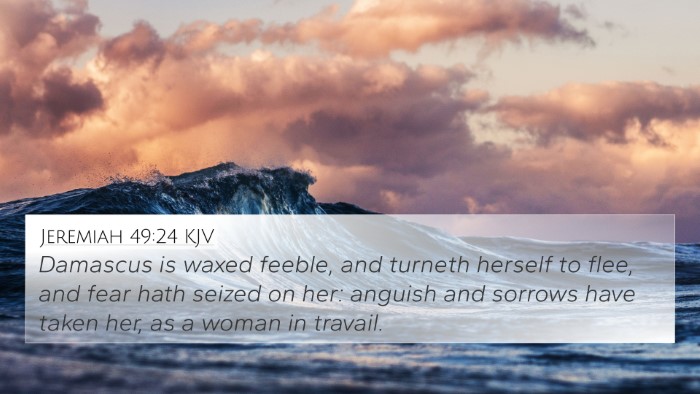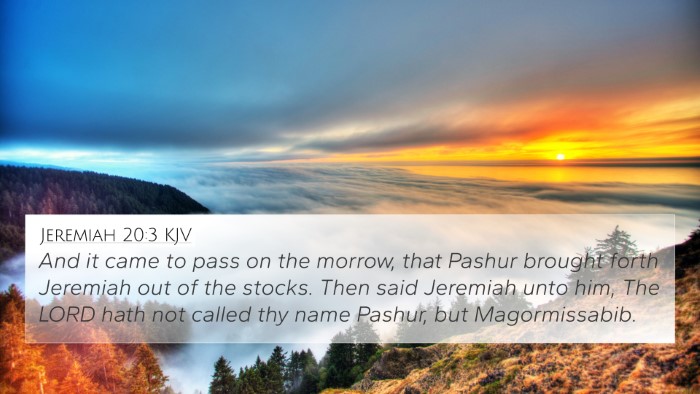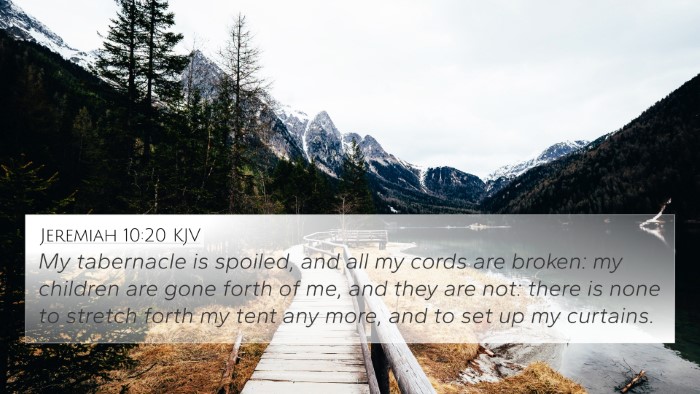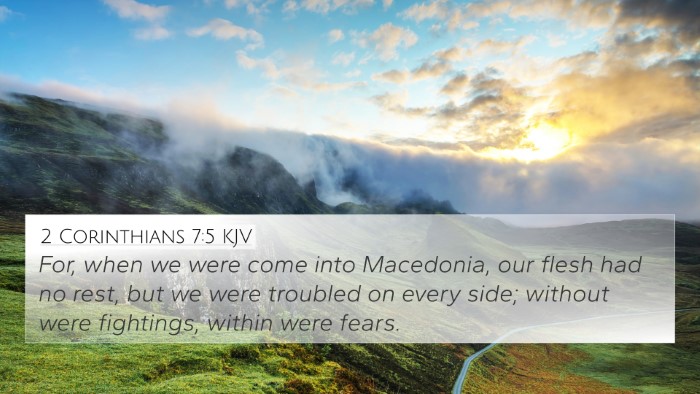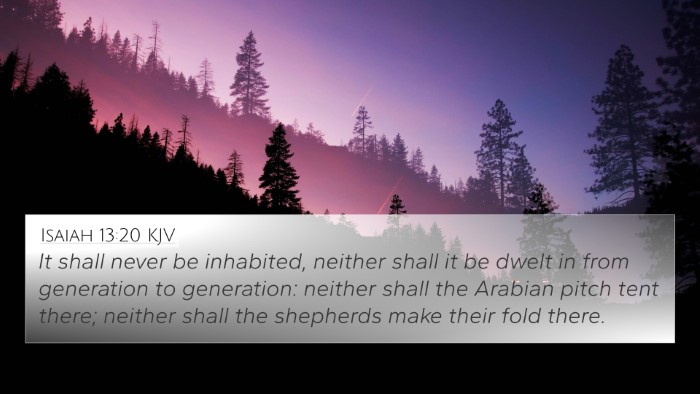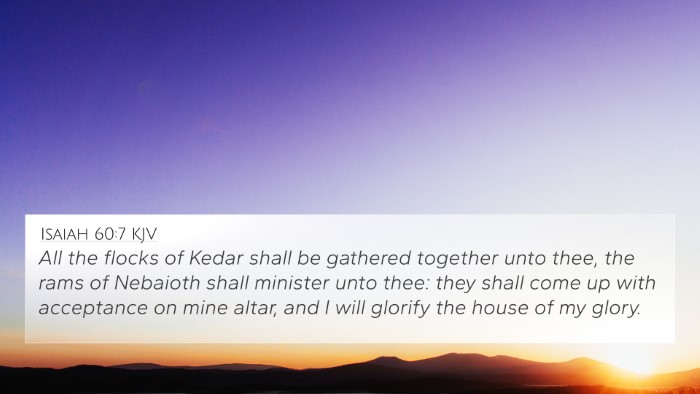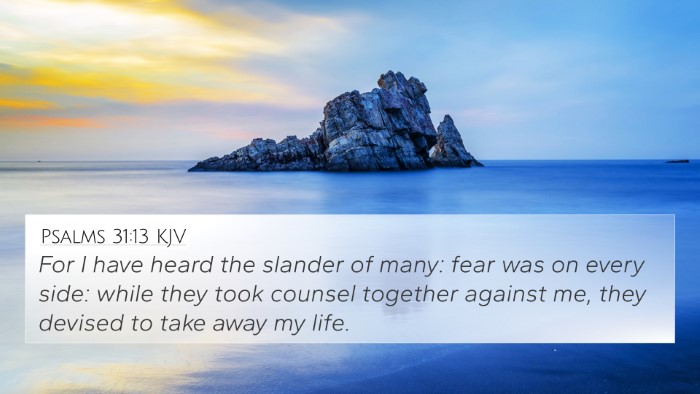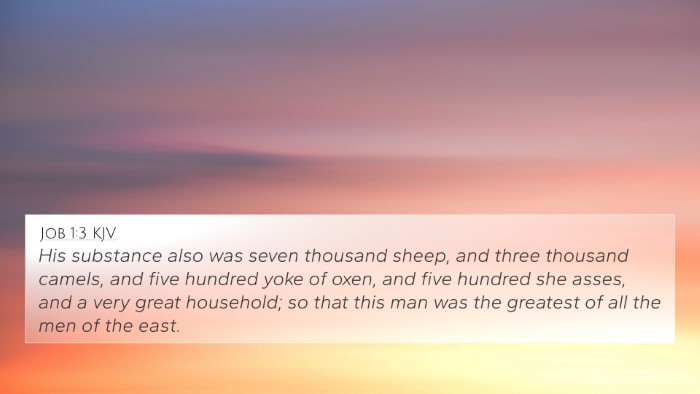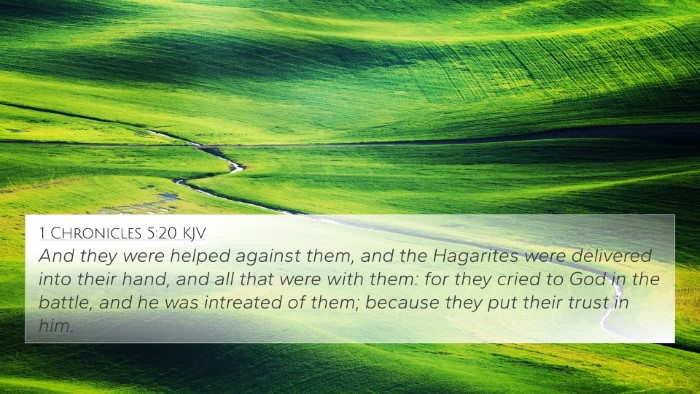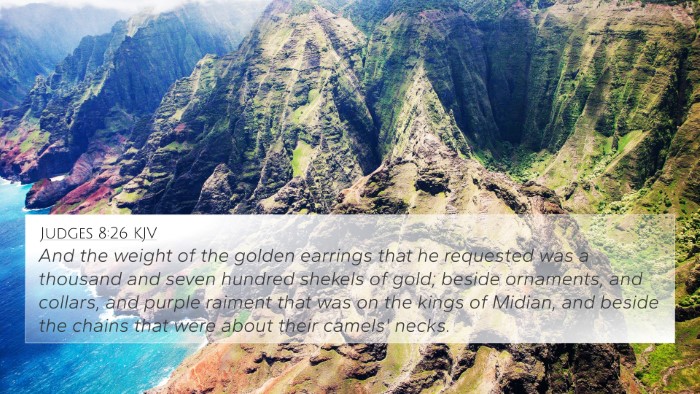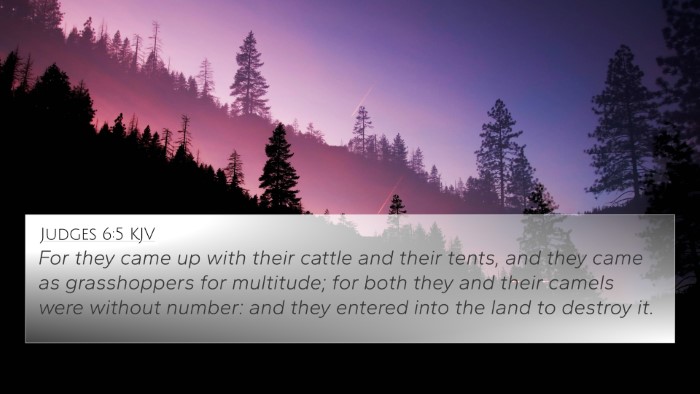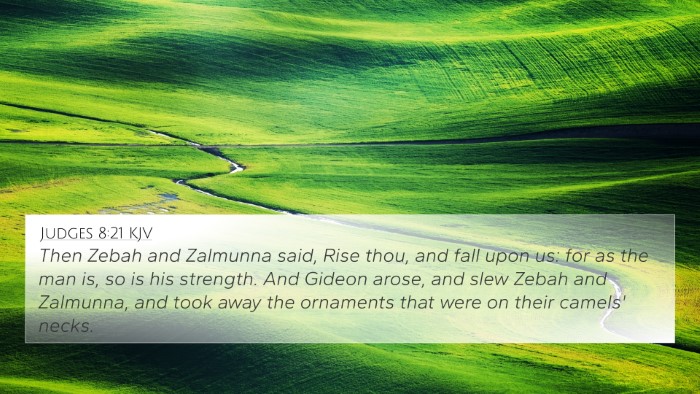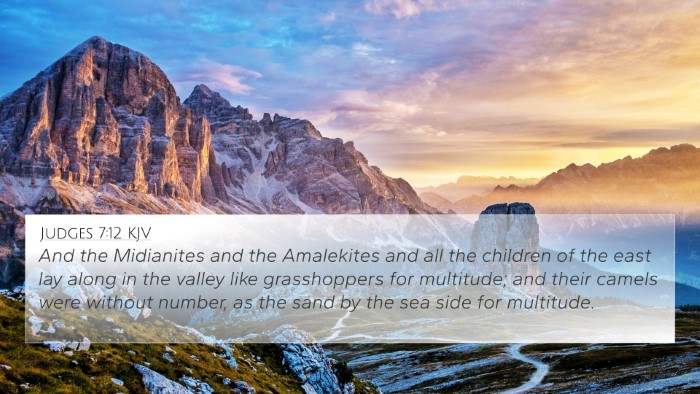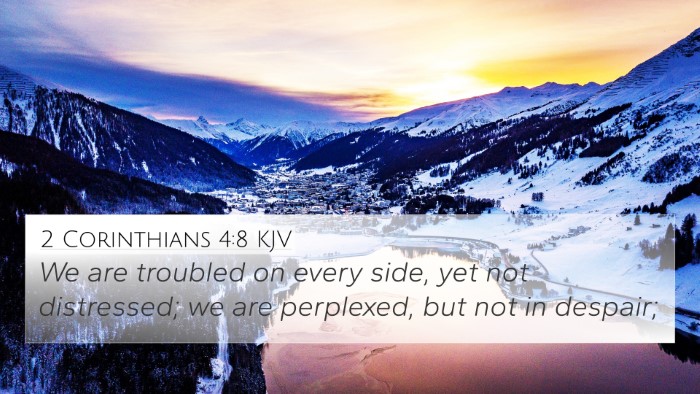Understanding Jeremiah 49:29
Jeremiah 49:29 states: "Their tents and their flocks shall they take away: they shall take to themselves their curtains, and all their vessels, and their camels; and they shall cry unto them, Fear is on every side." This verse is a pronouncement of judgment on the people of Kedar and the kingdoms of Hazor, emphasizing the destructive consequences they will face.
Summarized Commentary Insights
Matthew Henry's Commentary
Matthew Henry interprets this verse as an expression of the impending desolation of the land occupied by Kedar and Hazor. He reflects on how their past security is about to collapse under the might of the invaders. The mention of "fear" illustrates not just the physical destruction but also a profound emotional and spiritual terror that will envelop the populace.
Albert Barnes' Notes
Albert Barnes elaborates that this verse highlights the complete devastation that will befall the people. Their resources—represented by tents and flocks—will be taken away, indicating a total loss of livelihood and security. Barnes emphasizes that the imagery of "curtains," "vessels," and "camels" symbolizes their daily life and possessions; thus, their capture signifies a fundamental disruption of their societal structure.
Adam Clarke's Commentary
Adam Clarke provides an analytical view, linking this verse to the broader theme of divine retribution present throughout the book of Jeremiah. He notes that the phrase "fear is on every side" suggests a universal dread that will affect not only the physical realm but also the moral and spiritual condition of the people impacted by divine wrath.
Bible Verse Cross-References
To understand Jeremiah 49:29 in a broader context, here are some pertinent cross-references:
- Isaiah 21:16-17: Another prophecy concerning Kedar, illustrating their impending judgment and destruction.
- Jeremiah 46:5: Highlights the fear and dismay that will come upon nations as they face their enemies.
- Jeremiah 50:43: Reflects on the devastation felt when a mighty kingdom falls.
- Ezekiel 32:30: Describes desolate scenes among nations, linking back to the same themes of judgment.
- Amos 1:15: Concurrently speaks about the downfall of kingdoms, reinforcing the severity of divine judgment.
- Luke 21:26: Describes a future moment of fear amongst nations when divine judgment is imminent, paralleling the emotional response highlighted in Jeremiah.
- Matthew 24:6-8: Points to the signs of the times, where troubling times are assured, creating fear among people.
Thematic Bible Verse Connections
The themes of judgment, fear, and devastation are prevalent throughout the Bible. By linking Jeremiah 49:29 with these cross-references, we see a coherent narrative of divine response to human action and national sins. The connections also highlight a repetitive motif of God's justice at work throughout the Scriptures.
Comparative Bible Verse Analysis
When analyzing Jeremiah 49:29 in comparison to other verses, one can observe that God's judgment is often accompanied by fear and terror among the people affected. This correlation is evident in the aforementioned references where judgment leads to loss, prompting cries of despair, similar to what is expressed in Jeremiah 49.
Tools for Bible Cross-Referencing
For deeper study, several tools can aid in effective cross-referencing:
- Bible Concordance: A comprehensive listing of terms and their locations helps identify related verses.
- Bible Cross-Reference Guide: Guides that correlate verses thematically and contextually.
- Cross-Reference Bible Study: Techniques for examining connections between different scripture passages critically.
- Bible Reference Resources: Gives access to varied commentaries and platforms for in-depth analyses.
Bible Chain References
Chain references allow for exploring biblical themes through linked groups of verses. By creating a sequence from Jeremiah 49:29 through its cross-references, one can engage in a detailed exploration of themes like divine judgment, human responsibility, and the hope of restoration.
Conclusion
Jeremiah 49:29 serves as a powerful reminder of God's overarching justice and the consequences of sin. By utilizing cross-references and engaging in a comparative analysis, readers can gain a richer understanding not only of this specific verse but also of its place within the broader biblical narrative of judgment, fear, and eventual restoration.
As you study, consider these connections and engage with the text, asking questions regarding how these verses interact and what implications they hold for our understanding of God's character.
